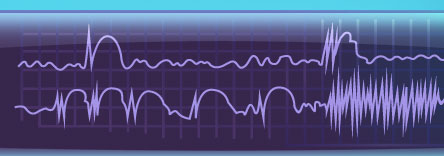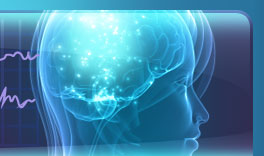|
|
|
WHAT IS EPILEPSY?
Epilepsy is a disorder that causes disturbances in the electrical impulses of the brain. The brain is a highly complex system, sending out roughly 80 “messages” per second. These messages move back and forth between nerve cells to produce thoughts, feelings and memories.
An epileptic seizure occurs when these messages are sent much more rapidly-as many as 500 per second for a short time-due to an electrical abnormality in the brain. This brief electrical storm can happen in just a small area of the brain, or it can affect the whole brain. Depending on the part of the brain that is affected, the surge of electrical energy can cause:
- Changes in a person's sensations or state of consciousness.
- Uncontrolled movements of certain parts of the body or of the whole body.
Epileptic seizures vary in severity and frequency, and even in the time of day they occur. While some people may experience no more than two or three seizures during their entire lifetime, others may have several seizures each day.
It is very important to remember that not everyone who has a seizure has epilepsy. A seizure is a symptom of epilepsy, but not all seizures are caused by epilepsy.
A seizure not related to epilepsy can be caused by a reaction to:
- A drug
- A high fever
- A severe head injury
- Other disorders such diabetes and some heart conditions.
Sometimes people have a single seizure for which no cause can ever be found.
|
|
|



